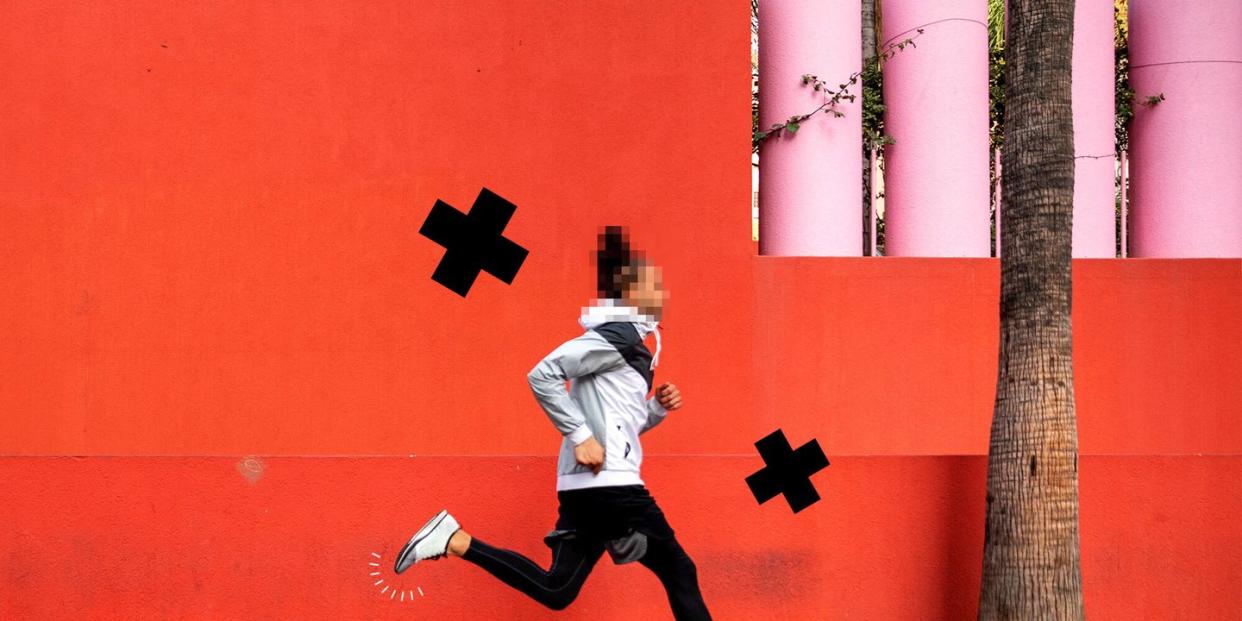Ahmaud Arbery’s Murder Wasn’t Shocking if You’re a Black Runner

Running has been one of the most freeing things in my life. There’s something so exhilarating about hitting the pavement and defying my own limitations. But I am also aware of the stigma, stereotypes, and harassment that come with running in public as an African American woman. And I am also aware that my male family members and friends face a different set of realities. Their simple act of exercise can so often be viewed as a form of aggression with under—and over—tones of racism and hate.
That’s what I keep thinking about as I painfully read stories about Ahmaud Arbery, the 25-year-old Black man who was shot to death in February while jogging through a white neighborhood in Brunswick, Georgia. The two men who killed him were arrested on charges of aggravated assault and murder on May 7 only after a national outcry.
It’s a series of events that unfortunately feels familiar in its trauma. Everyday activities are now mired in sadness, anger, and frustration.
There was the time in Burlington, Vermont, when I joined a running group for a summer. One day, I ventured off on my own for a solo jog near Church Street Marketplace, only to be scared by an older white couple who jumped as I ran past them at a slow pace in broad daylight. They appeared frightened. They yelled, “Sorry!” as I struggled with feelings of shock and disappointment and debated whether to continue. Then there was the time, a few years later, while running along a familiar path in my home state of Mississippi that I took off my headphones after hearing a continuous honking sound. I looked up to see a truck toting a Confederate flag and two passengers in the bed of the vehicle. They yelled at me as they drove by. I couldn’t make out what they were saying, but I have an idea.
Years ago, I ran on my high school’s cross-country team and was one of few African Americans at the all-girls school in a small coastal city less than 60 miles east of New Orleans. After joining the cross-country team, I found a familial environment with my peers. I loved smelling the salt from the sea and feeling the humidity against my skin as I ran along our usual route across a bridge. But there was a nagging feeling that chased me while I ran. Why didn’t I see many other Black people running on the bridge? A teammate once told me, “All you need are a nice pair of shoes and land to run, and you’re good.” Not quite. That’s when I realized my own reality was so much different than hers.
When we ran through a neighborhood I didn’t know, I felt the need to smile and wave at every person we passed. I always tried to carry a form of identification. I now know that this is called signaling, a coping response used to display less threatening actions in majority white spaces. My teammate didn’t have the same experiences I did even though we navigated the same roads.
In a recent study that sampled college-educated, middle-class Black and white people, author Rashawn Ray found that middle-class Black men were less likely to engage in physical activity in majority white neighborhoods than they were in more racially diverse or Black neighborhoods. This doesn’t surprise me—Arbery’s story is why.
On May 8, which would have been Arbery’s 26th birthday, there was a national virtual movement called #IRunWithMaud that asked runners to honor Arbery by running and posting on social media. It was a nice gesture, but it didn’t change the fact that we live in an unjust system where Black men can be killed for going on a jog.
It took months for the Georgia Bureau of Investigation to arrest the men who killed Arbery, and that is too long. A conviction should have been expected, but we’ve been trained not to get our hopes up. Again and again, my community asks for justice in the systemic violence against Black people, but we should not be the only ones demanding accountability. People like my white teammates from high school need to demand it as well. Justice for 26-year-old Botham Jean, who was killed for simply staying at home while being Black in Dallas. Justice for 17-year-old Jordan Davis, who was killed for listening to music while Black. And justice for Ahmaud Arbery, whose only crime was running while Black.
You Might Also Like

